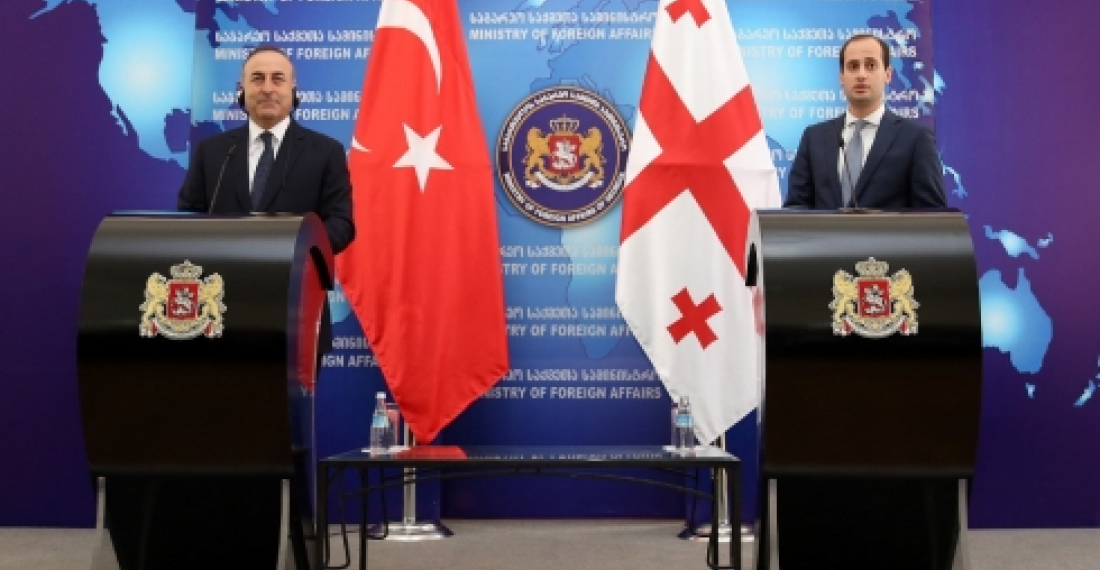On 17 February 2015, Minister of Foreign Affairs of the Republic of Turkey Mevlüt Çavuşoğlu paid an official visit to Georgia.
Georgian Foreign Minister Mikheil Janelidze hosted his Turkish counterpart at the Georgian Foreign Ministry where Mikheil Janelidze and Mevlüt Çavuşoğlu discussed a broad spectrum of relations between Georgia and Turkey and the importance of further exchanging high-level visits. In this context, special attention was paid to the issue of holding first meeting of the High Level Strategic Co-operation Council at the level of Prime Ministers in the near future.
The two ministers highlighted the joint efforts of the two countries aimed at the successful implementation of regional transport and energy projects. The importance of the Baku-Tbilisi-Kars Railway and the Southern Energy Corridor Projects was also highlighted.
"With due regard for Georgia's strategic location and huge transit potential, we attach tremendous importance to the smooth functioning of the transport corridor connecting Europe with Asia" - the Georgian Foreign Minister said.
Discussions during the meeting also focused on trade-economic co-operation between the two countries. According to the Turkish Foreign Minister, Turkey is interested in increasing Georgian exports to Turkey. Turkey remains Georgia's largest trading partner with the turnover of USD 1.51 billion in 2015. Georgian exports to Turkey declined in 2015 by 22.2% y/y to USD 186 million.
The Turkish Minister also reaffirmed his support for Georgia's European and Euro-Atlantic integration. Mikheil Janelidze thanked his Turkish counterpart for Turkey's active support for Georgia's integration with NATO.
The Ministers exchanged their views over the challenges facing global security and stability. They emphasised the need to settle the conflicts peacefully, based on full respect for the principle of sovereignty and territorial integrity of the States.
According to the Turkish Foreign Ministry, Çavuşoğlu will also hold talks with President Giorgi Margvelashvili; PM Giorgi Kvirikashvili and Parliament Speaker Davit Usupashvili.
source: commonspace.eu with mfa.gov.ge






